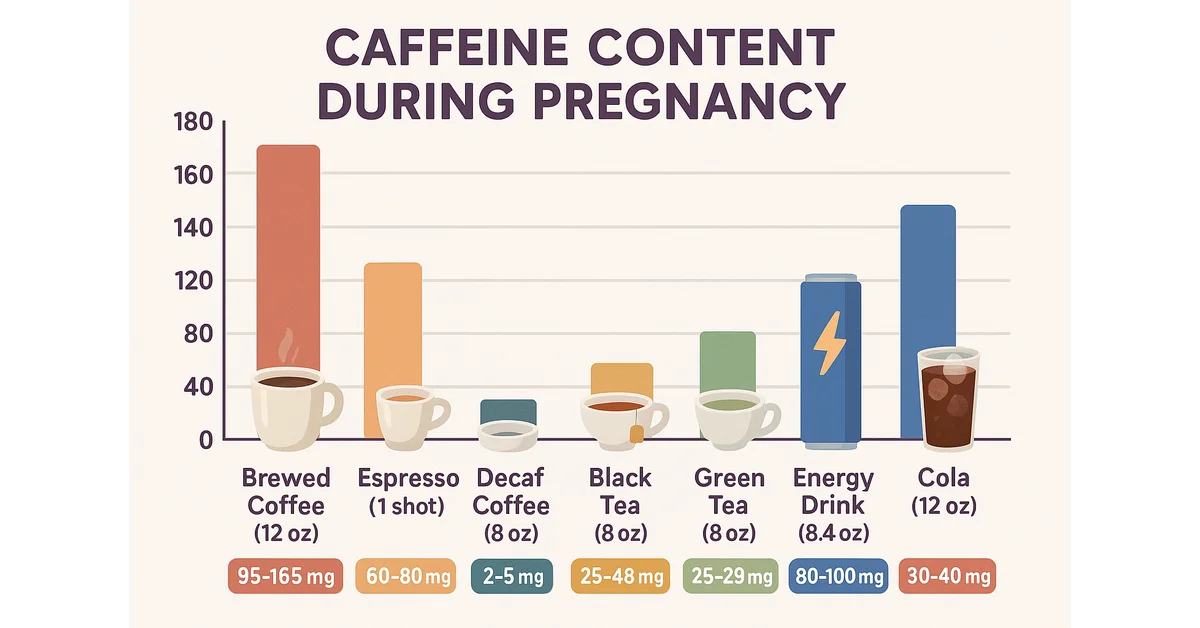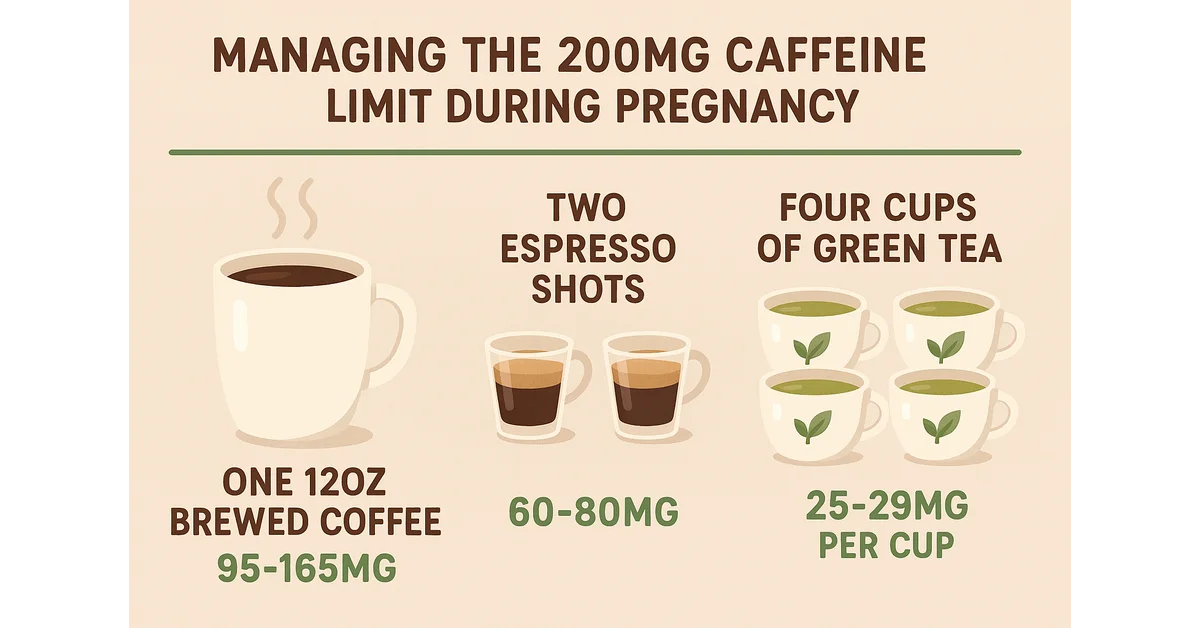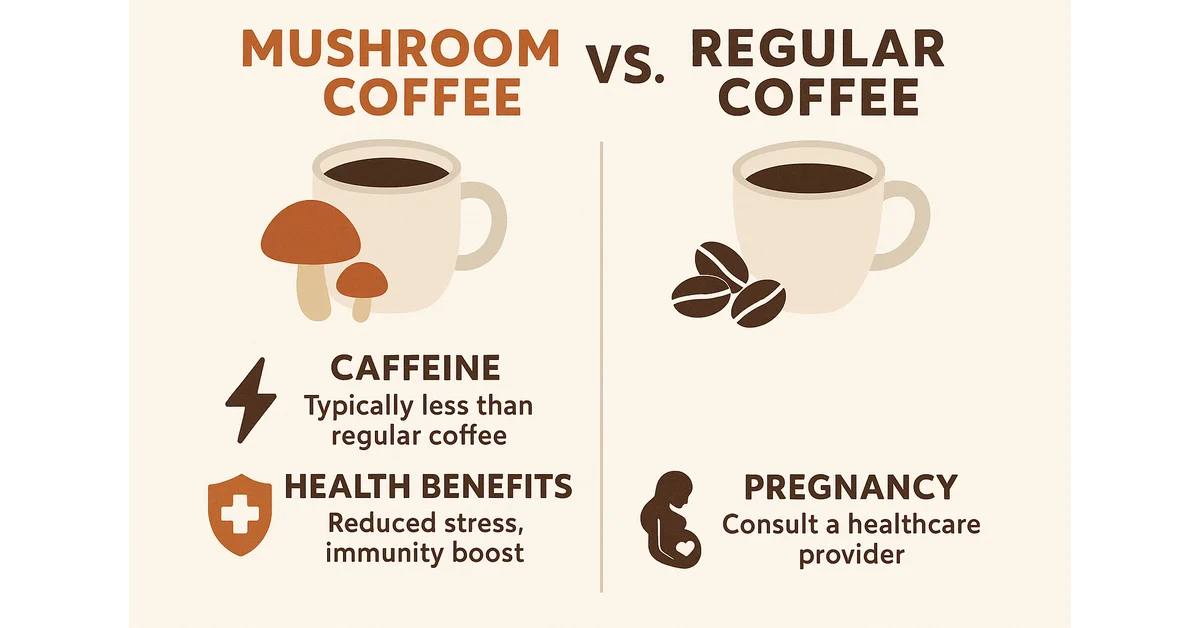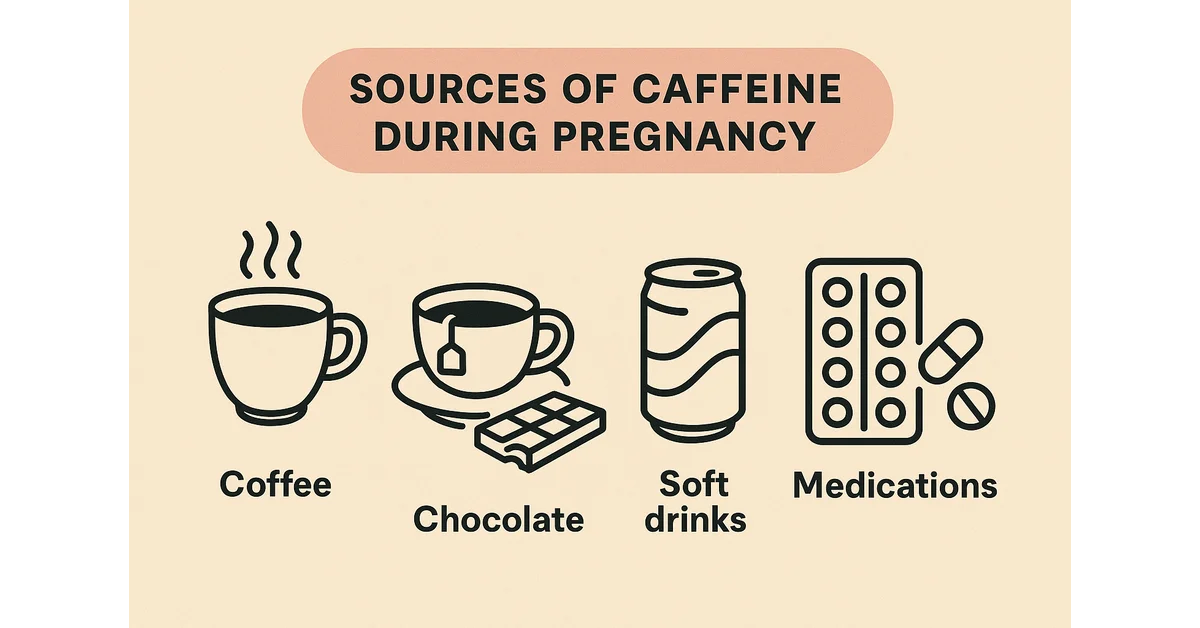(Doctor-Reviewed)
As a pregnant woman, you play a crucial role in making informed choices for both your health and that of your unborn baby. This includes understanding the risks and safe limits of caffeine consumption.
Pregnancy can be an exciting yet uncertain journey, leading to mixed feelings of excitement, joy, and worry. One of the most frequently asked questions I hear as an expectant mother is “Can You Drink Coffee While Pregnant?” with conflicting information available, as it is easy to become confused as to what is safest for both mother and baby.
This guide offers evidence-based answers to the question, “Can you drink coffee while pregnant?” We explore recommended caffeine limits during gestation and the potential risks of overconsumption, and offer strategies on how to safely cut back caffeine intake without sacrificing energy levels.

As a Certified Q-Grader and USDA Data Analyst, my approach is informed by years of experience and scientific research. This authoritative foundation of my advice is designed to reassure you as a pregnant mother, helping you make choices that prioritize both your well-being and that of your unborn baby during caffeine consumption during gestation.
Understanding Caffeine: What It Is and Where It Hides
What is Caffeine?
Caffeine is a natural stimulant found in coffee, tea, and chocolate that acts by blocking adenosine receptors in the brain to stop drowsiness from setting in and increase alertness while decreasing fatigue. Unfortunately, it is also known to raise heart rate and blood pressure significantly. Thus, managing intake during pregnancy should be carefully considered.
As we ponder “Can You Drink Coffee While Pregnant?” it is crucial to realize that caffeine may cross the placenta and reach a fetus that cannot efficiently process it, potentially exposing them to elevated levels for prolonged exposure (March of Dimes, 2021). Studies indicate that high caffeine intake during gestation may cause congenital disabilities (March of Dimes, 2021).
To better understand how much caffeine is in your daily cup of coffee, you can explore our article How Much Caffeine Is in a Coffee Bean?. This will give you deeper insights into how caffeine varies between different types of coffee beans and brewing methods.
Where Else is Caffeine Hiding?
Caffeine can be found in more places than your morning cup of java; here are a few common and unexpected sources:

- Coffee & Tea: Caffeine levels in different varieties of coffee, such as drip, espresso, or cold brew, can vary significantly, and so too can tea (black, green, or oolong) offer various levels of caffeine content.
- Soda and Energy Drinks: Energy drinks often contain added caffeine in large doses, sneakily increasing daily caffeine consumption. Chocolate: Both dark and milk chocolate contain caffeine due to their cocoa content; dark chocolate provides more caffeine due to its increased cocoa concentration.
- Medications: Over-the-counter pain relievers, cold remedies, and weight-loss pills may contain caffeine. Always read labels carefully to be aware of all sources of caffeine in these medications.
Expert Tip: Always read labels carefully, as caffeine may be hidden in products beyond coffee that you may not expect it to be in.
How Much Coffee Can You Drink While Pregnant? Recommended Caffeine Limits
The 200mg/Day Guideline
Health organizations like the American College of Obstetricians and Gynecologists (ACOG), World Health Organization (WHO), and Centers for Disease Control and Prevention (CDC) all recommend a daily caffeine limit of 200 milligrams during pregnancy. This amount is widely considered safe and is designed to reduce any potential risks to fetal health, ensuring that you can enjoy your daily caffeine without jeopardizing the well-being of your baby.

What Does 200mg of Caffeine Look Like?
To help you visualize the recommended limit:
- One 12-oz cup of brewed coffee (approximately 95-165mg)
- Two espresso shots (about 60-80mg)
- Four cups of green tea (approximately 25-29mg each)
This recommendation helps ensure that the fetus is not exposed to excessive caffeine, as it can interfere with normal development. Research has shown that high caffeine intake during pregnancy may have negative effects on fetal growth and development (Savitz et al., 2008).
Why Does This Limit Matter?
Pregnant individuals tend to metabolize caffeine more slowly, meaning it stays in their systems longer and can lead to higher bloodstream concentrations of caffeine.

Caffeine easily crosses the placenta and affects the developing fetus, whose liver and kidneys have not matured enough yet to process caffeine as efficiently as an adult body would; prolonged caffeine exposure could potentially result in complications like low birth weight or preterm birth (Savitz et al., 2008).
Can You Drink Decaf Coffee While Pregnant?
Yes, but in Moderation.
While decaffeinated coffee may appear to be the perfect solution for caffeine-sensitive pregnant individuals, asking “Can You Drink Decaf Coffee During Pregnancy?” remains an important one. Though decaf coffee contains significantly less caffeine (2-5mg per cup), it does contain some.

It’s important to remember that if you are consuming multiple cups of decaf coffee or other decaf beverages, those small amounts can add up. So, while decaf coffee provides a safe alternative, moderation is key to ensure you stay within the recommended caffeine limit.
Why Decaf is a Safer Choice:
For many pregnant women, decaf coffee offers a way to enjoy the flavor and ritual of a warm coffee without exceeding the recommended caffeine limit. However, it is essential to keep your total caffeine intake in check to avoid any risk to the developing baby.
Download Our Comprehensive Guide to Caffeine During Pregnancy
To help you stay on track with your caffeine intake during pregnancy, we have created a downloadable PDF guide that includes helpful tips, a caffeine tracker, and more. This guide will empower you to make safe, informed choices every day!
Can You Drink Mushroom Coffee While Pregnant?
What is Mushroom Coffee?
Mushroom Coffee is an innovative drink that combines traditional coffee with medicinal mushrooms such as reishi, lion’s mane, and chaga for increased health benefits, such as immunity boosting, stress relief, and cognitive function improvement. Mushroom coffee has become increasingly popular as an appealing and healthier alternative to regular coffee, featuring lower caffeine content while providing additional health advantages.

Pregnant individuals may find the idea of enjoying mushroom coffee while expecting appealing, with its gentler caffeine boost without compromising flavor. While mushroom coffee typically contains less caffeine than its coffee counterpart, what really matters here are its medicinal mushroom constituents and their effects during gestation.
Can You Drink Mushroom Coffee While Pregnant?
While mushroom coffee typically contains lower caffeine levels than traditional coffee, pregnant women should still be wary of using medicinal mushrooms during gestation, such as reishi, lion’s mane, and chaga, as these adaptogens have various impacts on the body that may interact with pregnancy hormones or medications. Some may not be considered safe during gestation.
- Reishi Mushroom: Well-known for its relaxing properties, Reishi mushroom has long been used in traditional medicine as a stress reliever and relaxant. Although Reishi can help alleviate stress levels during pregnancy, its potential benefits could potentially interfere with sleeping patterns during gestation. Furthermore, Reishi may interact with blood pressure medications or alter circulation, and should always be taken after consulting with a healthcare provider first.
- Lion’s Mane Mushroom: This mushroom has long been revered for its ability to improve cognitive function, promote brain health, and increase memory recall. Although lion’s mane mushroom may offer great cognitive benefits during pregnancy, its use should be approached carefully with a doctor, as the risks involved remain unknown. * Lion’s Mane Mushroom
- Chaga Mushroom: Packed with antioxidants, Chaga is used primarily as an immune booster. Although Chaga has anti-inflammatory effects, it can also affect blood sugar levels and immune system functioning, making it essential to exercise caution if gestational diabetes is a factor.
The Safety of Medicinal Mushrooms During Pregnancy
Reishi, lion’s mane, and chaga mushrooms are generally safe for most individuals; however, during pregnancy, it is wise to proceed with caution as their effects have yet to be studied in depth. Compounds present within these mushrooms could interfere with hormone levels, blood pressure, or immune function.
So you must consult a healthcare provider before adding any medicinal mushrooms to your diet.
Reishi contains mild sedative properties that could interact with changes to pregnancy-related sleep patterns and blood pressure, possibly having an impactful result on both. Lion’s mane is thought to affect cognitive health, but further research needs to be completed on it before supplementation during gestation. Adding mushrooms like Chaga or Shiitake might interfere with medications or affect blood sugar.
Therefore, pregnant women should consult their healthcare provider before adding these supplements to their diet.
Expert Tip: Before adding mushroom coffee supplements into your daily regimen, always consult with a healthcare provider, as their effects on pregnancy remain unknown.
How Much Caffeine Is in Mushroom Coffee?
Ryze Mushroom Coffee contains just 48 mg per serving compared to 100-150 mg in typical coffee beverages, providing an ideal solution if pregnant mothers want to control their caffeine consumption during gestation.
While Ryze provides an easier option than traditional coffee for managing intake during gestation, it should still be treated as caffeine affects your body. It should only be consumed responsibly and sparingly.
For a more detailed comparison of caffeine content in mushroom coffee and traditional coffee, check out our article on Does Ryze Mushroom Coffee Have Caffeine?, where we break down the specific caffeine levels in Ryze Mushroom Coffee.
Making Informed Choices for a Healthy Pregnancy
So, the question remains, “Can pregnant women drink coffee?” Yes, with caution and moderation. Caffeine intake should not exceed 200mg daily. Whether choosing regular, decaf, mushroom coffee, or any other form, always remain mindful of your total caffeine consumption from all sources.

By following guidelines, reading labels, and consulting your healthcare provider about caffeine intake during your pregnancy, you can maximize its benefits while making informed consumption decisions.
Remember that every pregnancy is unique, so always feel comfortable discussing your caffeine habits with an OB-GYN or midwife for personalized advice.
References
- March of Dimes. (2021). Caffeine and pregnancy: Risks and recommendations. Retrieved from https://www.marchofdimes.org
- Savitz, D.A., Chan, R.L., Herring, A.H., & Hartmann, K.E. (2008). Maternal caffeine consumption during pregnancy and the risk of miscarriage: A prospective cohort study. American Journal of Obstetrics and Gynecology, 198(3), e1-8.
- American College of Obstetricians and Gynecologists (ACOG). (2020). Caffeine during pregnancy. Retrieved from https://www.acog.org
- World Health Organization (WHO). (2019). Guidelines on caffeine intake during pregnancy. Retrieved from https://www.who.int
- Centers for Disease Control and Prevention (CDC). (2020). Pregnancy and caffeine. Retrieved from https://www.cdc.gov









